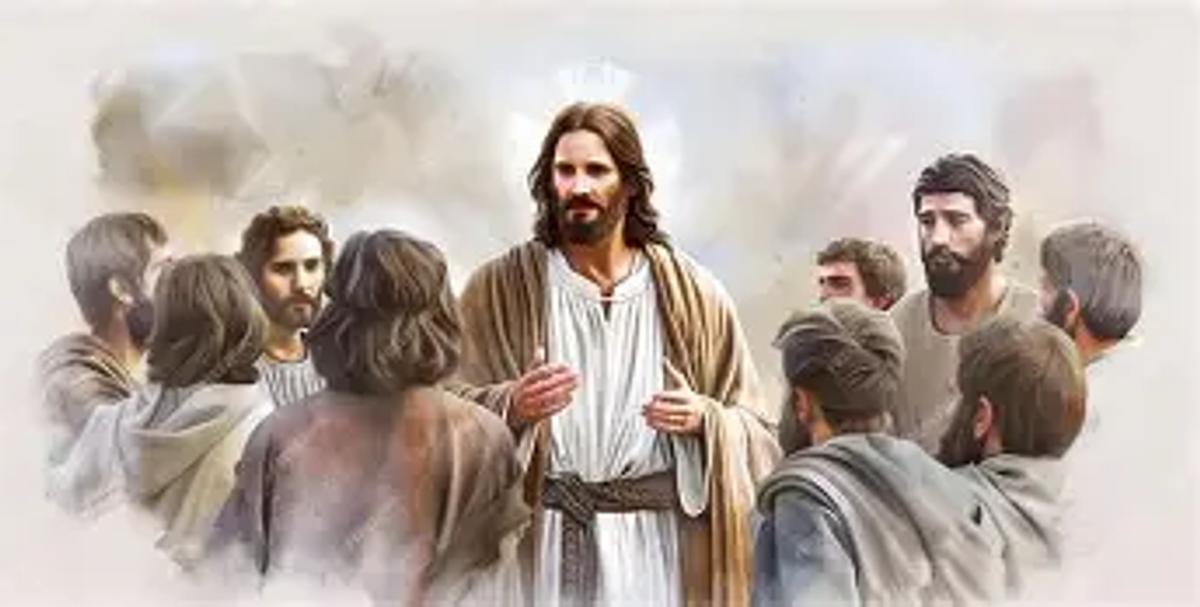RE News

SCRIPTURE REFLECTION
Luke 10: 1-9
The harvest is plentiful but the labourers are few.
In this week’s Gospel, Jesus appoints seventy-two of his followers and sends them out in pairs to every town and place he intended to visit. He tells them, “The harvest is rich, but the labourers are few; so ask the Lord of the harvest to send workers to gather his harvest. Go now — I am sending you out like lambs among wolves. Take no purse, no bag, no sandals, and greet no one along the way. When you enter a house, say first, ‘Peace to this house.’ If a person of peace lives there, your peace will rest upon them; if not, it will return to you. Stay in the same house, eating and drinking what they provide, for the labourer deserves their wages. Do not move from house to house. When you enter a town and are welcomed, eat what is set before you, heal the sick who are there, and say to them, ‘The kingdom of God is very near to you.’”
This passage gives us an insight into the practical nature of Jesus’ ministry. Seventy-two disciples were sent ahead to prepare the way for him, though the Gospel doesn’t describe exactly what their mission involved, how they preached, or what their experiences were. Much of the Bible focuses on the Apostles, leaving much of Jesus’ wider ministry open to imagination. We know that others, such as Lazarus—whom Jesus raised from the dead—and Mary Magdalene, continued to follow him closely. The passage also suggests that Jesus visited at least seventy-two different places, which would have made for an exhausting and demanding journey.
Mark’s Gospel adds to this sense of mystery, describing how Jesus spent long periods in the wilderness and performed miracles such as driving out demons with little explanation. Even in this passage, the disciples are given the power to heal the sick, yet we are told nothing more about their experiences. I’ve often wondered what else Jesus did that was never recorded—small acts of compassion, moments of teaching, and encounters with people who remain unknown to us.
This Gospel reading also provides practical advice to those first disciples. Travelling to share a message that challenged both Jewish and Roman authorities would have been risky. There were dangers from robbers and hardship on the road. Jesus instructed them to accept hospitality when offered, to move on when not welcomed, and not to overstay their welcome. It gives us a glimpse into what it truly meant to be a disciple — leaving behind family, possessions, and comfort to travel into uncertainty, relying entirely on the kindness of others.
When I read this passage, I think about the challenges we face in living out our faith today. For the disciples, the barriers were external — danger, distance, and hardship. For us, the barriers are often internal — comfort, distraction, and busyness. In our safe and structured world, we can easily overlook those on the margins: the homeless, the lonely, people with disabilities, and those suffering in distant places.
This week, we are challenged to be like those disciples — to take risks for the sake of love and compassion. It might mean helping someone even if they don’t show appreciation, reaching out to repair a friendship even if it’s uncomfortable, or donating more generously than usual. Let’s step out of our comfort zones and make the world a better place, one small act at a time.
By Jonathan Rooney
Religious Education Leader
CLASS MASS TIMETABLE
Week | Date | Class | Chosen theme |
Term 4 2025 | |||
2 | 17.10.2025 | NO MASS | |
3 | 24.10.2025 | 0 W | Children of God - God Loves Me |


